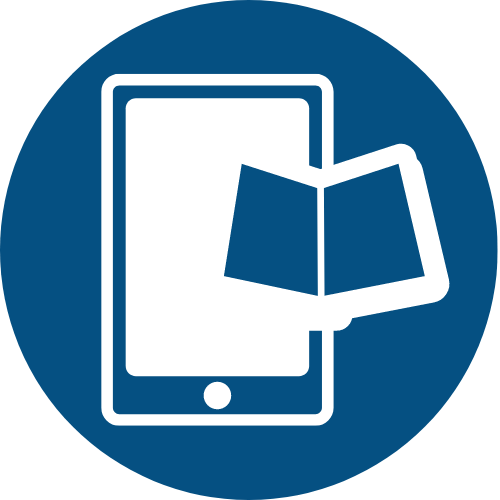PA-ADOPT Overview
In 2017, West Chester University (WCU) expanded its capability to help faculty members create open educational resources through the establishment of the WCU eTextbook Initiative. This year-long program provides interested faculty members with regular professional development and support to design and implement high-quality, interactive electronic textbooks through the lens of the Quality Matters Standards, while providing students with free access to educational materials. To date, faculty from a variety of departments including English, Biology, Theater & Dance, Geography & Planning, and Communication & Media Studies have developed e-textbooks for a cost-savings of over $220,000.




Initial evaluation of the program has shown that out of 91 students surveyed, 83% prefer e-textbooks over traditional textbooks. The respondents stated that they most appreciate e-textbooks for either their convenience/easy access, ease of use, interactive images and videos, or because they are free.
Though provided at no cost to the students, the e-textbooks designed through this initiative are not currently required to be OER. Moreover, though they go through a technical review, there is no formal mechanism for copyediting or peer-review of these e-textbooks and program evaluation has been optional. PA-ADOPT will modify the WCU e-Textbook Initiative with the goal of creating a collection of high-quality e-textbooks that are freely disseminated using the Principles of OER with the following objectives:
Objective One
Training faculty throughout the four participating institutions to develop competencies needed to author open eTextbooks.
Objective Two
Establishment of a new process for copyediting and peer-review in addition to regular technical review of the open eTextbooks.
Objective Three
Establishment of a shared space across the PA-ADOPT institution for publishing and distributing the completed open eTextbooks with a primary focus on student and faculty accessibility.
Objective Four
Establishment of a new process for project evaluation that includes continuous improvement of the eTextbooks based on input from faculty and students.
A study by Costello et al., revealed that the average student pays approximately $224 for textbooks per course or about $1,800 per year (Costello et al. 2019). This is a $600 increase in the average annual cost for textbooks reported in 2016 (Baglione et al. 2016, Senack and Donoghue, 2016). To mitigate the impact of the continual rise in textbook prices universities have begun to provide students with free access to educational materials or Open Educational Resources (OER).
The member institutions in the Pennsylvania Alliance for Design of Open Textbooks (PA-ADOPT), Cheyney University, Kutztown University, Millersville University, and West Chester University define OER in terms of the principles described by opencontent.org (Wiley). Thus, the OER proposed for development herein will be materials that are licensed so that users have free and perpetual permission to engage in the following activities:
- Retain: the right to make, own, and control copies of the content
- Reuse: the right to use the content in a wide range of ways
- Revise: the right to adapt, adjust, modify, or alter the content itself
- Remix: the right to combine the original or revised content with other open content to create something new
- Redistribute: the right to share copies of the original content, revisions, and remixes with others.

Funding Support
PA-ADOPT was made possible by the US Department of Education Open Textbook Pilot Program.
References
Costello, E.; Bolger, R.; Soverino, T.; Brown, M. “Determining Textbook Costs, Formats, and Licensing with Google Books API: A Case Study from an Open Textbook Project.” Information Technology and Libraries, 2019, 381(1), 91-99.
Baglione, S. L.; Sullivan; K. “Technology and Textbooks: The Future.” American Journal of Distance Education, 2016, 30(3), 145-55.
Senack, E.; Donoghue, R. [online] The Student PIRGs, 2016. Covering the Costs: Why We Can No Longer Afford to Ignore High Textbook Prices. https://studentpirgs.org/2016/02/03/covering-cost/ (accessed October 1, 2020).